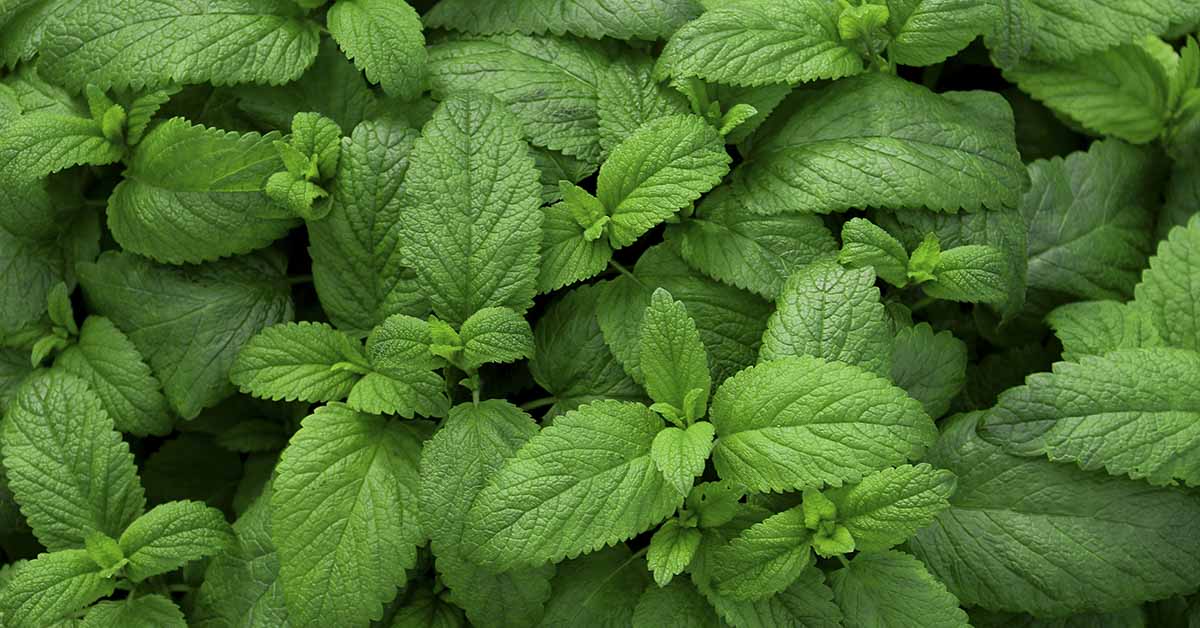Many people easily recognise mint for its fragrant and refreshing flavor. Known particularly for its cooling effect when consumed, it is a popular ingredient in culinary dishes and beverages globally. Mint is a general group term for over a dozen plant species belonging to the genus Mentha. These include peppermint, which is widely used in desserts and other culinary dishes, and spearmint, used in lozenges.
Mints applications extend beyond adding robust flavor to dishes. For years, mint has been hailed for its health benefits. From teas to soothe indigestion to aromatherapy oils to alleviate stress and muscle pain, the health benefits of mint are extensive. Mint is rich in nutrients and a potent source of antioxidants, helping protect your body against cell damage. It is also a good source for vitamin A, which is crucial for eye-health.
While very robust in flavor and often difficult to consume in large quantities, mint is nutrient-dense. However, there are various ways to consume mint to benefit from its properties. Mint is usually consumed orally, either prepared as tea, as raw leaves or medicinal drops. Some research has suggested that mint applied topically on the skin and aromatherapy oils purport several health benefits.
More Than Just a Refreshing Herb

Mint’s health benefits are wide-ranging, from supporting digestion and cognitive function to promoting oral health and immune resilience. Whether enjoyed fresh, as a tea, or in supplement form, mint is a versatile herb that can enhance both flavor and well-being. Here are a few of the many health benefits that mint supports.
Supports Digestive Health
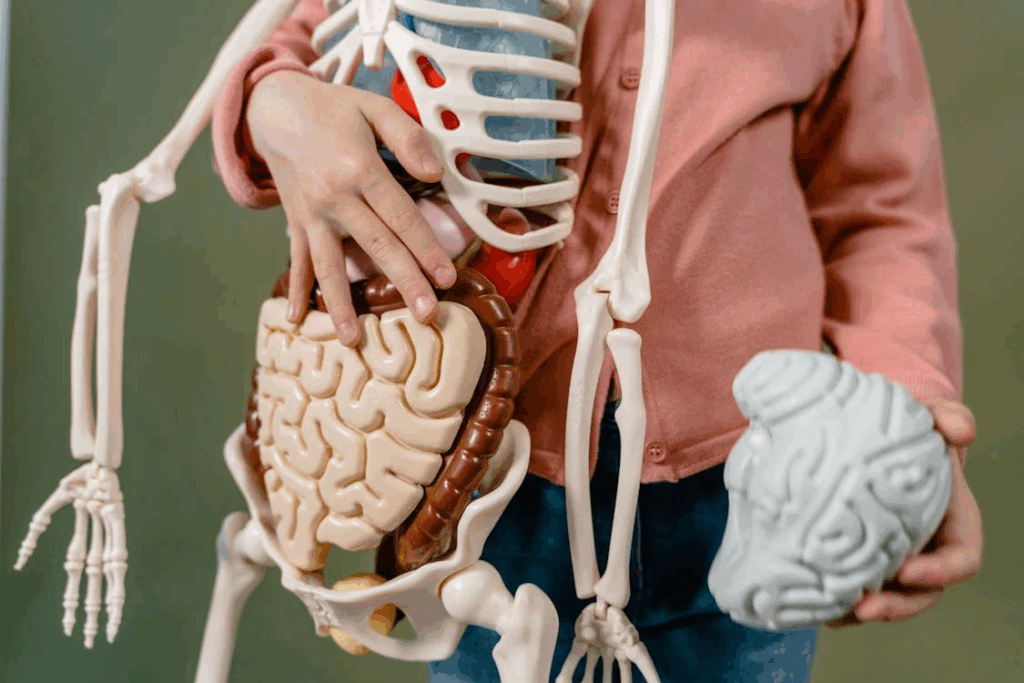
One of the most well-known benefits of mint is its positive impact on digestion. Mint, especially peppermint, contains L-menthol, an active compound known for its muscle-relaxing properties. L-menthol works by blocking calcium channels that trigger contractions in the smooth muscles of the digestive tract.
This helps alleviate symptoms such as abdominal pain, bloating, and diarrhea, particularly in individuals with irritable bowel syndrome (IBS). Mint may also help relieve indigestion and abdominal discomfort, especially when used in combination with other ingredients like caraway oil.
Enhances Cognitive Performance

New research has sprouted up that mint, particularly in the form of peppermint oil, may boost your brain’s ability to function. Compounds in mint interact with neurotransmitters involved in memory and attention, such as acetylcholine. In one study, a single dose of peppermint oil improved cognitive test performance and reduced mental fatigue in participants. This highlights its potential for mint to be used as a natural way to enhance alertness and focus.
Read More: Ten Science-Backed Herbs and Supplements to Help Lower Your Blood Sugar Naturally
Soothes Nausea

The soothing aroma of mint has been shown to help reduce symptoms of nausea, especially in clinical settings. Mint aromatherapy, for example, has been found to alleviate nausea and vomiting in people undergoing chemotherapy. Some studies also suggest that oral peppermint oil may reduce nausea and improve appetite. While most research centers around aromatherapy, the results demonstrate mint’s potential for easing digestive discomfort and nausea.
May Improve Exercise Performance

Preliminary evidence suggests that mint could benefit physical performance. Its muscle-relaxing properties may help ease tension in the smooth muscles in the lungs, improving tissue oxygenation and stamina. Small studies have reported improved exercise performance, lung and heart function in individuals who consumed peppermint oil before physical activity. However, more research is needed to confirm these effects in larger population numbers.
Promotes Oral Health
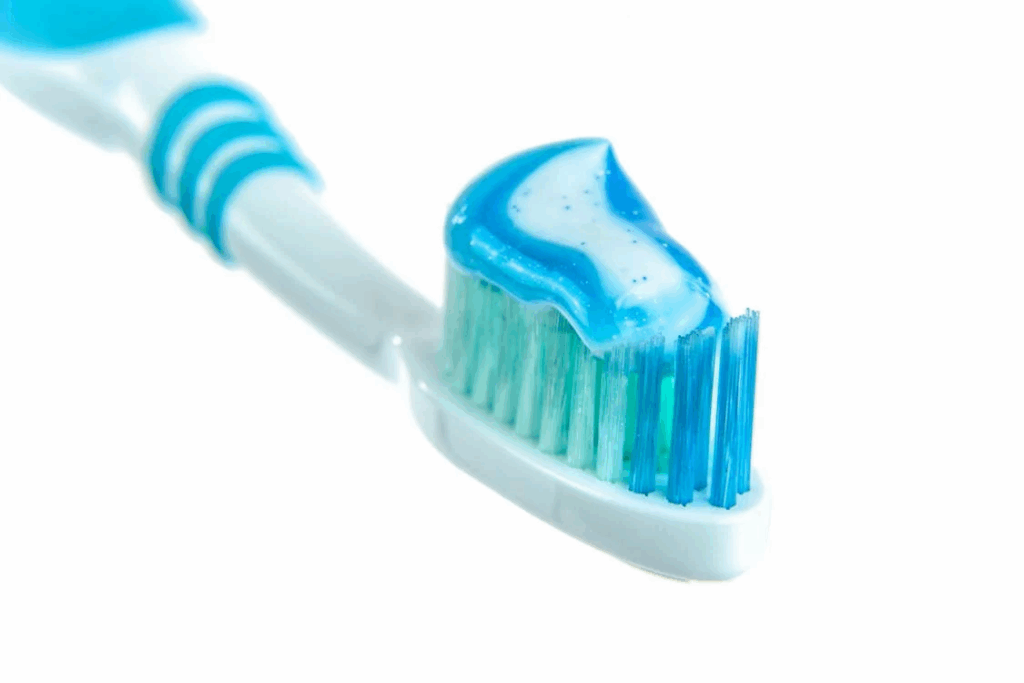
Breath mints and mint-flavored chewing gum are usually the go-to for masking or getting rid of bad breath. Mint’s antibacterial properties make it a popular ingredient in oral hygiene products. It helps kill bacteria that cause bad breath and may reduce the risk of gum infections. Chewing fresh mint leaves or using mint-infused mouthwash can help maintain fresh breath and oral cleanliness.
Supports Immune Function

Thanks to its vitamin and antioxidant content, mint can help bolster the immune system. Nutrients like vitamin C and iron support immune defense and tissue repair, while antioxidants help the body fend off illness and inflammation. Mint can potentially alleviate cold symptoms. Menthol, a primary compound found in peppermint oil, is in many over-the-counter cold and flu medications. Many people believe it is an effective decongestant, clearing airways and promoting better breathing.
Ways to Reap the Health Benefits of Mint

Mint is a versatile herb and can be incorporated into your daily life in a variety of easy ways. From supporting digestion to enhancing cognitive function, the health benefits of mint are both diverse and well-supported by research. It makes having this fragrant herb a valuable addition to any wellness enthusiast’s arsenal. Here’s how you can maximize the health benefits of mint through tea, food, supplements, and aromatherapy.
Read More: Top 10 Spices & Herbs to Support Arterial Health
Sip Mint Tea for Daily Wellness
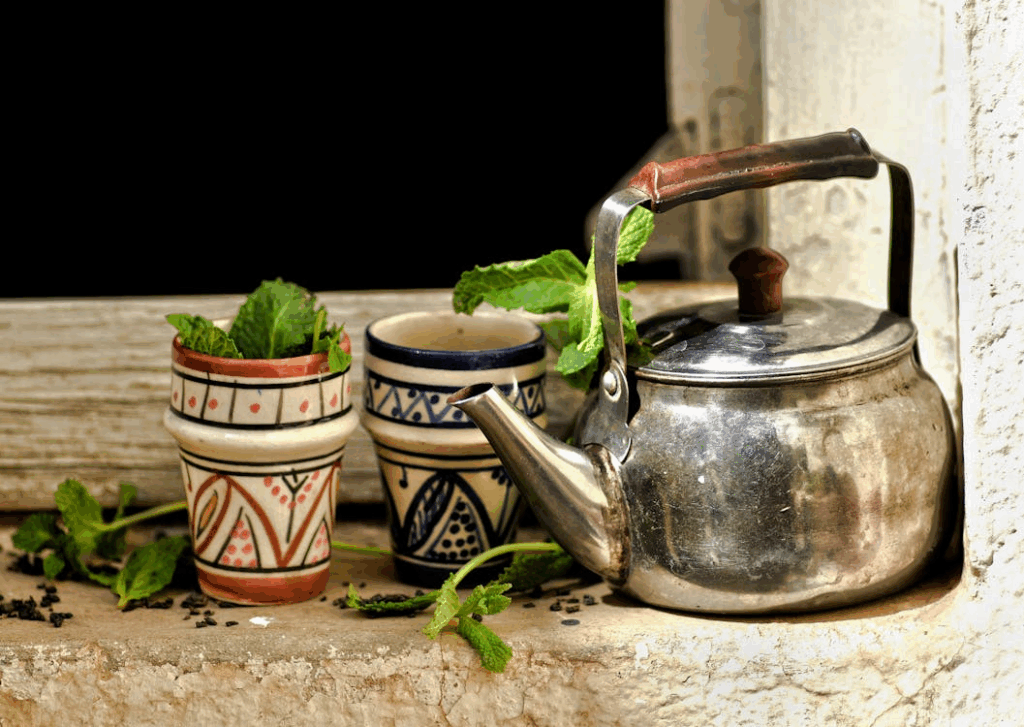
One of the simplest and most effective ways to enjoy the health benefits of mint is by brewing mint tea. The menthol in mint tea relaxes the muscles of the digestive tract, easing symptoms of indigestion, bloating, and even irritable bowel syndrome (IBS). Mint tea is also caffeine-free, making it a soothing beverage for stress relief and relaxation. To prepare, steep fresh or dried mint leaves in hot water for 5 to 10 minutes. Enjoying a peppermint tea after meals can aid in digestion or in the evening for stress relief.
Add Fresh Mint to Foods
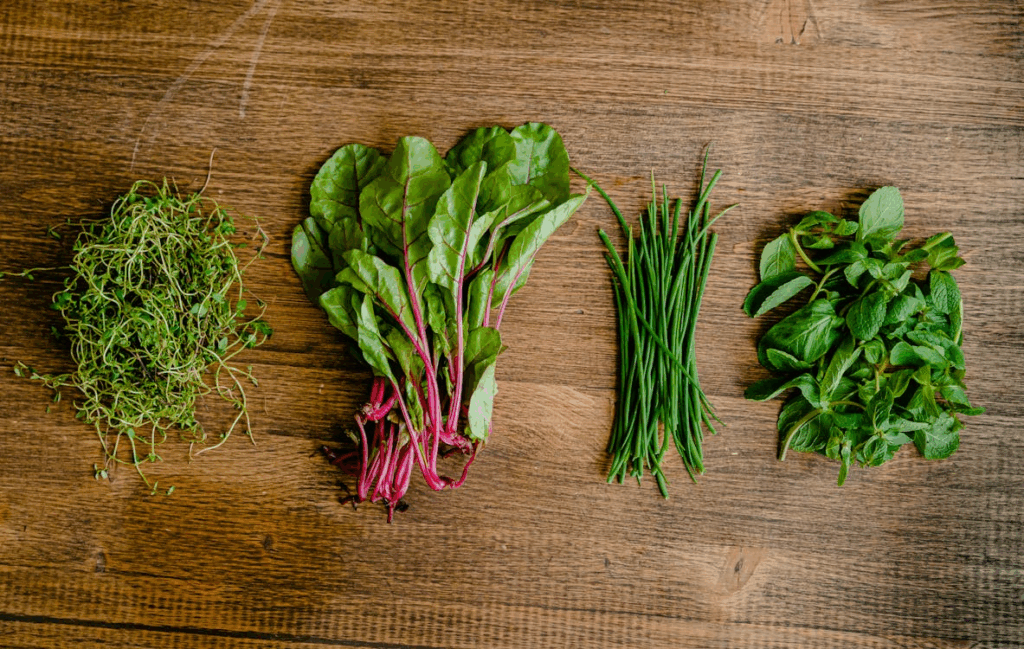
Incorporating fresh mint leaves into your meals is a delicious way to enjoy their health benefits. Mint is rich in antioxidants, vitamin A, and iron, which support immune health and cellular protection. Try adding chopped mint to green salads, blending it into smoothies, or using it as a garnish for fruit, yogurt, or desserts to infuse dishes with a refreshing, nutrient-packed twist.
If you are looking for savory options, mix mint into homemade pestos, dressings, or sauces. Pair it with lamb, chicken, or fish for a Mediterranean flair. Even small amounts can enhance flavor while providing valuable nutrients and antioxidants.
Explore Mint Supplements for Targeted Support

If you’re seeking specific health benefits of mint, such as relief from IBS or enhanced brain performance, consider mint supplements. Peppermint oil capsules are widely studied for their ability to reduce abdominal pain, bloating, and other digestive symptoms. Some research also suggests that peppermint oil may boost mental alertness and reduce fatigue.
Always follow dosing instructions on the label and consult your healthcare provider before starting any supplement. Take extra precautions, especially if you have existing health conditions or take medications, as mint can interact adversely with them.
Mint’s Benefits Through Aromatherapy
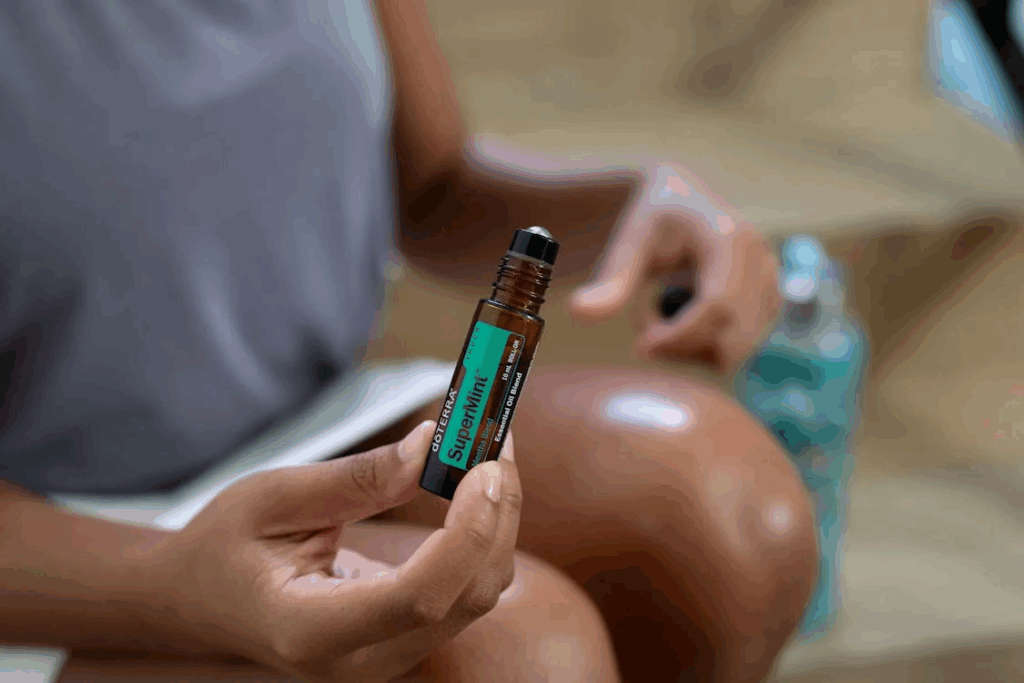
The health benefits of mint can also be achieved through aromatherapy. Inhaling its aroma can ease nausea, sharpen focus, and relieve headaches. Try adding peppermint oil to a diffuser to give a refreshing aroma to your space, bolster your alertness and enhance your focus.
For respiratory relief, add mint oil to hot water and inhale the vapors from the steam to clear nasal passages. This aromatherapy technique is also commonly used to help alleviate congestion. Whether diffused or inhaled, mint’s refreshing properties make it a versatile remedy.
Use Mint for Oral and Skin Health

Unlike mint-flavored products that mask bad breath, real mint kills odor-causing bacteria with its natural antibacterial and antifungal properties. Swish cooled mint tea as a mouthwash or chew fresh leaves to freshen breath and support gum health. For skin, cooled mint tea can be used as a gentle toner to soothe irritation and reduce inflammation.
Precautions and Best Practices

While mint offers numerous health benefits, overconsumption can lead to heartburn, mouth sores, allergic reactions, and lowered blood sugar levels. Peppermint oil, if taken undiluted, may cause throat irritation, nausea, or headaches. Those with gastroesophageal reflux disease (GERD) should use caution, as mint can relax the lower esophageal sphincter, worsening symptoms.
Health professionals caution that individuals with gallstones, liver damage, or hiatal hernias should avoid high doses of mint. Pregnant and breastfeeding women should consult a doctor before using concentrated mint products. People taking medications for acid reflux, diabetes, or high blood pressure should also seek medical advice, as mint may interact with these drugs.
However, fresh or dried mint used in cooking or tea is generally safe for most people in moderate amounts. Adding mint to meals, tea, or aromatherapy enhances both flavor and health benefits effortlessly.
Disclaimer: This information is not intended to be a substitute for professional medical advice, diagnosis or treatment and is for information only. Always seek the advice of your physician or another qualified health provider with any questions about your medical condition and/or current medication. Do not disregard professional medical advice or delay seeking advice or treatment because of something you have read here.
Read More: Healing Leaves: 10 Leaves With Powerful Medicinal Value
